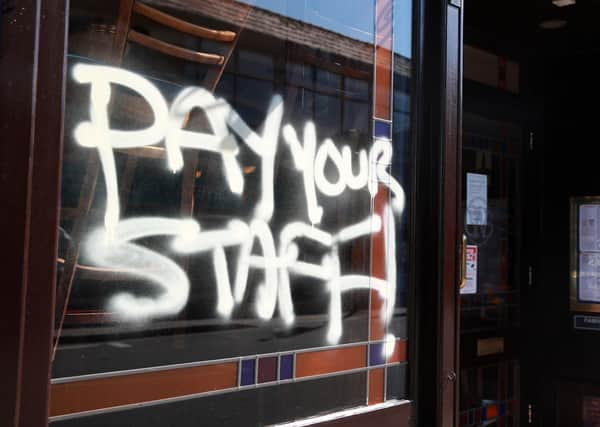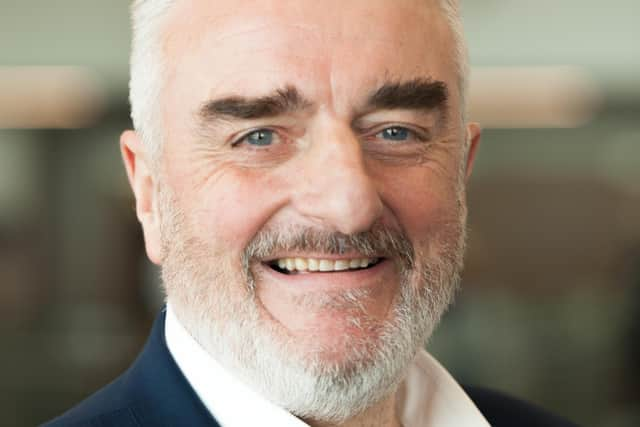Coronavirus: If this is a war, then humanity is all on the same side – Tommy Sheppard


It’s difficult to write an opinion piece in the middle of the current emergency. Things are changing so fast. Everyone, well nearly everyone, is doing their best to cope. It just doesn’t seem right to pontificate on such a fluid and intense situation.
Thousands of workers in Edinburgh’s retail and hospitality sector are now at home. Idleness enforced by the need for a public health response to the biggest threat we’ve ever faced. Thousands more self-employed find themselves workless and anxious.
Advertisement
Hide AdAdvertisement
Hide AdMost businesses are trying to protect their staff and government schemes are being put in place. Shockingly, though, some of the country’s biggest employers are among those behaving badly.


Top of the list is Wetherspoons who initially announced they wouldn’t pay their staff and told them to work in Tesco – even after the government announced it would cover 80 per cent of wage costs – and were forced to back down after pressure from 100 MPs including myself.
EasyJet too, with their cuddly image, are using the emergency to force through changes to company terms and conditions to make their staff work harder for less.
They say a crisis brings out the best and worst in people. We need to call out companies that seek to profit from it. They should be named and shamed. And just like during the war, legal action must be taken against those who seek to profit from the misery and anxiety of others. Thankfully, though, the good very much outweighs the bad. I know many more instances of people taking action to help others. This crisis will change us – and change how we interact with each other. Already there are trends appearing which might leave us stronger after the battering.
Advertisement
Hide AdAdvertisement
Hide AdWe will emerge with a more international outlook. A greater awareness now of how countries are interdependent and that ultimately, we live or die together. True, there’s been some rubbish talked about this being the fault of the Chinese. But most folk know that if this is indeed a war, then humanity is all on the same side. The need for sharing knowledge and coordinating action has never been greater and it should strengthen those institutions which deliver it.
Interesting too is the complete inadequacy of global capitalism to respond. As stock markets panic and flounder, it is the state in every country that has taken action on the health front and has led on mitigating the economic impact. I wouldn’t be at all surprised if this experience doesn’t leave many questioning the balance between private and social sectors in modern society.
At a local level a million acts of human kindness have blossomed. People have spoken to neighbours they did not know. Many have volunteered to help the health and social care services cope. The selfless have greatly outnumbered the selfish. When we get to the other end of this our society will be more gentle and more tolerant for having lived through it. The seeds are being sown for bigger changes too. The impact of this emergency has thrown into sharp relief just how fragile our social structures are. Millions of people work without the security of a contract at all. Millions more have a contract but no guaranteed hours. There is now a compelling case for a universal basic income to underpin a system of work and reward.
The government stepping in to guarantee wages and keep people on payroll has dismissed two key intellectual arguments against UBI. First, it acknowledges that whether people can work or not is rarely within their own control. Second, it recognises that wages have a social as well as an individual function. If people have no money, economic demand plummets into an endless spiral of decline and their poverty increases demand on collective resources such as health and shelter.
If we can learn from this experience, then as a country, as a species, we will be much more resilient to the challenges of the future.
Tommy Sheppard is the SNP MP for Edinburgh East.
Comment Guidelines
National World encourages reader discussion on our stories. User feedback, insights and back-and-forth exchanges add a rich layer of context to reporting. Please review our Community Guidelines before commenting.